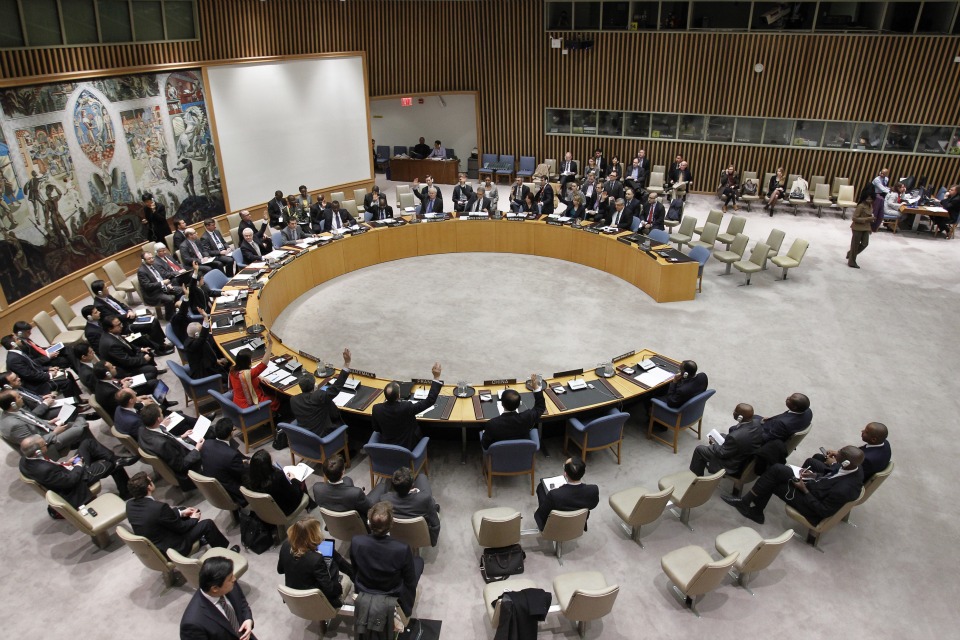"Conflicts in Africa continue to take a devastating toll on the continent"
Statement by United Kingdom Permanent Representative, HE Sir Mark Lyall Grant at the UN Security Council Briefing on “Prevention of Conflicts in Africa: Addressing the Root Causes”

Thank you Madam President for convening this important meeting this morning. I should like to take the opportunity to congratulate Rwanda on its presidency of the Security Council this month. I also thank the Secretary-General for his briefing and Ambassador Alemu for his statement on behalf of the Chair-Person of the African Union.
Madam President,
Conflicts in Africa continue to take a devastating toll on the continent. Lives are needlessly lost. Populations face brutal consequences such as sexual violence; use of child soldiers; and mass displacement.
Conflict has also stopped Africa delivering on its enormous potential. Africa has vast natural resources, some of the fastest growing economies in the world and in the African Union, an increasingly strong and influential continental organisation. But only by addressing the root causes of conflict can Africa secure sustainable peace and unlock this potential.
Madam President,
As you know only too well, 800,000 people tragically died in the Rwandan genocide. That mass atrocity threatened the very existence of Rwanda and its people. The international community recognises, with shame, that we should have done more. We said ‘never again’. The doctrine of Responsibility to Protect was endorsed by all member at the World Summit in 2005 as a means of delivering on this promise. The Responsibility to Protect is the foremost responsibility that sovereign governments owe to their populations. But the international community also has a responsibility to support and assist States in this task.
Today we take stock of our performance in tackling conflict in Africa. And we should admit that we are not doing well. In the last few months alone crises in Mali, the Central African Republic and eastern DRC, have emerged or worsened. We must learn the lessons from our failure. We must better spot the warning signs and act accordingly. We must use the right tools, at the right time.
Madam President,
The United Kingdom believes that representative, legitimate and inclusive political systems, unwavering respect for human rights and the rule of law, and social and economic development are the most important factors which help to prevent conflict in Africa as elsewhere. The crisis in eastern DRC reminds us, that when these factors are absent, it is very difficult to break the cycle of conflict.
Delivering effective national institutions is a key part of upstream prevention. We need to help national governments in building capacity through mechanisms such as the New Deal for Fragile States. All UN member states should invest early in supporting fragile states. The work of the United Nations on civilian capacities, and efforts from African countries to share expertise and experiences, are also important. The United Kingdom particularly welcomes G8 Foreign Ministers’ commitment last week to take steps that address and deter sexual violence that too often accompanies and fuels conflict. We shall follow up this initiative during our own Security Council presidency in June.
Madam President,
When a crisis is on the horizon, we need to spot it early. This means, as the Secretary-General told us, improving our early warning systems is vital. The United Nations regional offices of West and Central Africa are starting to play a role, but it is not yet enough; we hope that the recently established UN Crisis and Operations Centre will also make a difference. But equally, early warning, is only useful when it is acted upon. The UN is slowly getting better at mediation and preventative diplomacy, but there is much more to be done. Too many Members of this Council shy away from their responsibilities on conflict prevention.
Madam President,
Where conflict does break out, we must hold those responsible, accountable, and demonstrate that impunity will not be tolerated. The International Criminal Court and other regional tribunals are vital to ending impunity. We need to facilitate transitional justice that enables countries to emerge and recover from violent conflict.
Madam President,
Preventing conflict and addressing their root causes is a long term and complex process. If we are to succeed in helping African states in this endeavour, we must work together to support local processes and to build local capacities. This means, as others have said, that we should support the African Union Peace and Security Council in its conflict prevention work, while respecting the Security Council’s global responsibility for maintaining international peace and security. We must promote preventive diplomacy, and transform the UN’s culture of ‘response after conflict’ into one of ‘prevention before conflict’. We must never stop learning lessons about what does and does not work.
And we must deliver on our promise of ‘never again’.